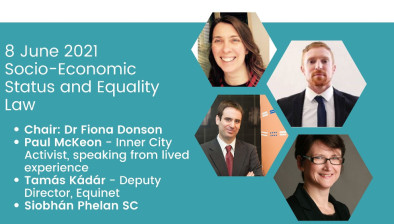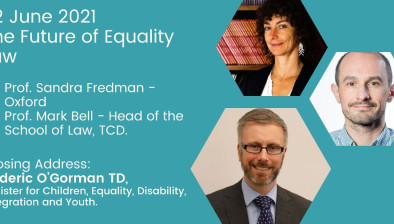Northern Ireland should ‘build on’ successful fair employment legislation

Pictured: Geraldine McGahey, chief commissioner of the Equality Commission for Northern Ireland
Northern Ireland legislators should “proceed with caution” to ensure that any new legislation tackling discrimination and inequality in the workplace builds on the success of the fair employment laws introduced three decades ago, the Equality Commission for Northern Ireland has said.
The watchdog today published the 32nd Fair Employment Monitoring Report, which reveals that there are equal numbers of Protestants and Catholics in the workforce for the first time — roughly 245,000 Protestants, 245,000 Catholics and 74,000 in neither category.
Geraldine McGahey, chief commissioner, said: “The fair employment legislation paved the way for the Belfast-Good Friday Agreement by bearing down on discrimination and inequality and making significant inroads into what was seen previously as an impossible barrier to political and economic progress.
“Northern Ireland’s workforce composition as shown in this report is very different to what we saw 30 years ago. The fair employment legislation was responsible for driving that change, and for proving that legal enforcement of rights could work.”
She continued: “We have had fairer participation in workplaces for some years, reflecting the figures on people in the community available to work.
“Our society is changing, so inevitably the workforce will change too. The Commission is focusing on the need for law reform, including a Single Equality Act, but it’s important that we proceed with caution.
“Any new legislation should build on the unique and highly successful fair employment provisions. It should be seen as a chance to strengthen and enhance the laws that have worked so well to make our workplaces less divided, more inclusive, and more accepting of difference.
“Fair employment legislation could never have worked without the efforts of employers and trade unions who made a commitment to equality, sometimes in very difficult circumstances. We thank employers for the work they do to collect and share fair employment information, especially in the period under review when the pandemic was still raging.”







